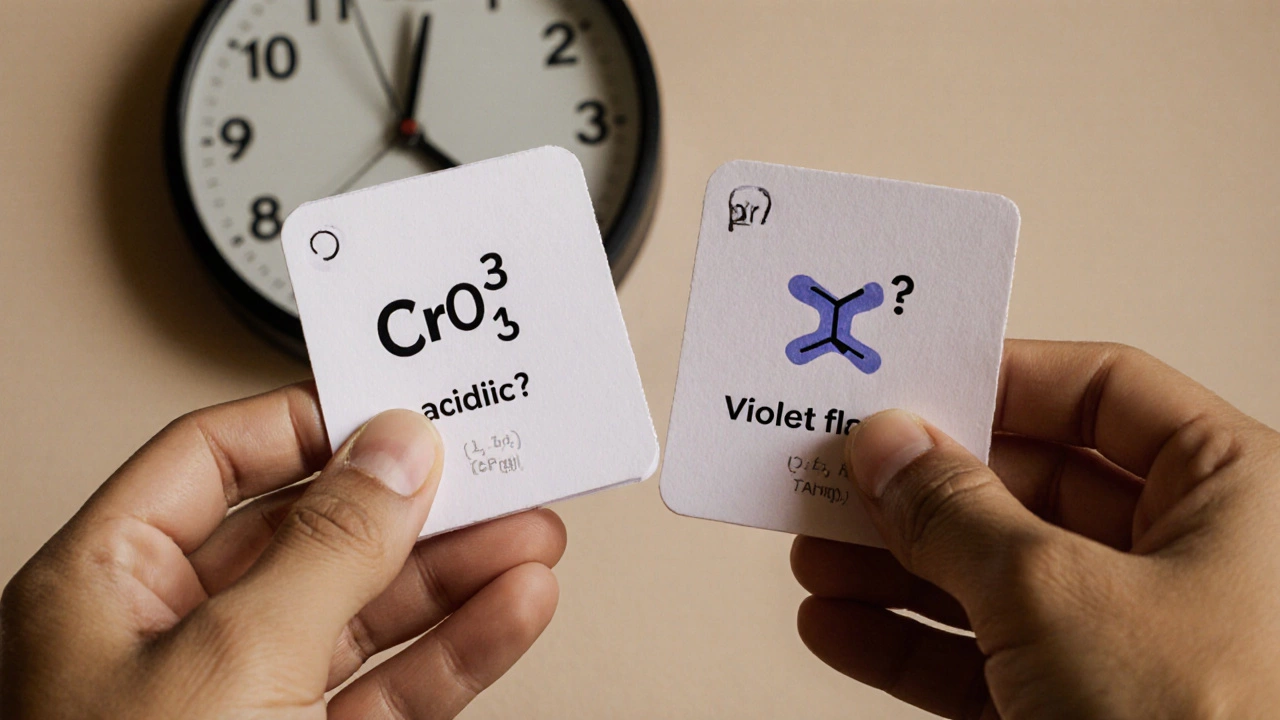JEE Mains Score Estimator
This tool estimates your potential JEE Mains score based on your progress through recommended books. According to the article, consistent mastery of key resources like NCERTs, HC Verma, and R.D. Sharma can help you achieve high percentiles.
NCERTs are the foundation for all three subjects. Over 60% of questions come from NCERT concepts.
The gold standard for Physics preparation. Solving 80% of problems can get you above 85% in Physics.
Most reliable for Organic Chemistry. Understanding mechanisms is key for high scores.
Builds speed and accuracy. Solving 25 out of 30 questions in 60 minutes indicates you're on track.
For advanced Math practice. Use this only after mastering R.D. Sharma.
For Physical Chemistry numericals. Focus on high-yield topics like stoichiometry.
If you're aiming for JEE Mains, the right book can make all the difference. Not every popular book is right for you. Some are too advanced, others too basic. A few are full of outdated questions. The goal isn't to collect ten books-it’s to master three or four that actually help you score higher.
Start with NCERTs-they’re not optional
Before you touch any other book, finish NCERT Physics, Chemistry, and Mathematics for Classes 11 and 12. Yes, really. Over 60% of JEE Mains questions in recent years come directly from NCERT concepts or are slight variations. A student from Patna scored 98.5 percentile in 2024 just by mastering NCERTs and solving past papers. They didn’t use a single coaching module. NCERTs teach you clarity, not complexity. If you can explain a concept from NCERT in your own words, you’re already ahead of half the aspirants.
Don’t just read them. Solve every example, every exercise, every back-of-chapter question. Mark the ones you get wrong. Revisit them weekly. NCERT isn’t a textbook-it’s your foundation.
Physics: HC Verma is still the gold standard
After NCERT, move to Concepts of Physics by H.C. Verma. It’s not flashy. It doesn’t have 500 problems per chapter. But it teaches you how to think. Each problem is designed to build intuition. The theory is concise, the explanations are clear, and the difficulty curve is perfect for JEE Mains.
Many students skip Vol. 1 and jump straight to advanced books. That’s a mistake. Vol. 1 covers all JEE Mains topics-from kinematics to thermodynamics-with depth. Vol. 2 is useful if you’re targeting JEE Advanced, but for Mains, Vol. 1 is enough. Solve every subjective question. Don’t just look at the solution. Try again. If you can solve 80% of HC Verma’s problems without help, your physics score will be above 85.
Chemistry: Organic needs O.P. Tandon, Inorganic needs NCERT + N. Awasthi
Chemistry is the easiest subject to score high in-if you know where to focus. For Organic Chemistry, O.P. Tandon’s Organic Chemistry is still the most reliable. It breaks down mechanisms step-by-step. You’ll understand why reactions happen, not just memorize them. Skip the flashy books with 1000 reactions per page. Tandon gives you the 150 that matter.
For Inorganic Chemistry, stick with NCERT. Every single line in NCERT Inorganic is fair game. Make flashcards for exceptions: which metal gives a violet flame? Why is CrO₃ acidic? These are the questions that separate 95th percentile from 99th.
For Physical Chemistry, use N. Awasthi’s Physical Chemistry. It’s problem-heavy, but the solutions are detailed. It’s not for beginners. Use it after you’ve built a strong base with NCERT and coaching notes. Focus on numericals-especially stoichiometry, equilibrium, and electrochemistry. These topics make up nearly 40% of JEE Mains Chemistry.
Mathematics: R.D. Sharma + Cengage
Mathematics is where most students lose time. R.D. Sharma is the go-to for building speed and accuracy. It’s boring, repetitive, and exactly what you need. Solve every exercise in Chapters 1-15: Relations, Functions, Trigonometry, Quadratic Equations, Matrices, Determinants, Limits, Continuity. These are the core chapters that appear every year.
Once you’re confident with R.D. Sharma, move to Cengage Mathematics by G. Tewani. It’s structured by topic, with graded problems. The theory is minimal, the questions are JEE Mains-level, and the answer keys are accurate. Don’t try to finish the whole book. Pick 3-4 topics per week and master them. Skip the advanced sections-they’re for JEE Advanced only.
Practice time-bound mock tests using only these two books. If you can solve 25 out of 30 Math questions in 60 minutes, you’re on track.

What to avoid
Don’t waste time on books like Arihant’s 40 Years or MTG’s 38 Years unless you’ve already mastered the basics. These are for revision after you’ve built confidence. They’re full of JEE Advanced-level questions that will only frustrate you early on.
Avoid coaching modules with 1000-page theory. They’re overwhelming. You don’t need to read every line. You need to solve smartly.
Don’t chase new books every month. Stick with your core four: NCERT, HC Verma, O.P. Tandon, R.D. Sharma. Add Cengage and N. Awasthi only if you’re scoring above 70% in mocks.
How to use these books effectively
- Start with NCERT. Finish it by December of Class 11.
- Begin HC Verma and O.P. Tandon in January of Class 12.
- Use R.D. Sharma alongside your school syllabus.
- Do 3-4 chapters per week. Don’t rush.
- Keep a mistake journal. Note why you got something wrong-misconception, calculation error, or skipped step.
- Take a full mock test every Sunday using only past JEE Mains papers.
Consistency beats intensity. One hour a day, done right, beats six hours of distracted reading.
Real results from real students
A student from Bhopal cleared JEE Mains in 2024 with a 97.8 percentile. She used only NCERT, HC Verma, and R.D. Sharma. She didn’t join any coaching. She studied 4 hours a day, 6 days a week. Her secret? She solved every problem twice-once when learning, once before the exam.
Another from Jaipur scored 99.1 percentile. He used NCERT, O.P. Tandon, and Cengage. He made flashcards for every formula and reaction. He reviewed them daily during his commute. He didn’t have a fancy notebook-he had discipline.

Final checklist
By January of Class 12, you should have:
- Completed NCERT for all three subjects
- Solved at least 80% of HC Verma (Physics)
- Mastered O.P. Tandon’s Organic and NCERT Inorganic
- Finished R.D. Sharma’s core chapters
- Started Cengage and N. Awasthi for targeted practice
- Taken 15+ full-length JEE Mains mock tests
If you’ve done this, you’re not just prepared-you’re ready to outperform students who spent twice as much time.
What if you’re behind?
If you’re starting late-say, in March of Class 12-focus only on NCERT and past papers. Skip HC Verma’s theory. Do only the numericals you can solve in under 5 minutes. For Chemistry, memorize NCERT Inorganic. For Math, focus on Calculus, Algebra, and Coordinate Geometry-they’re high-yield. Skip Trigonometry proofs. Prioritize what gives you the most marks per hour.
It’s not about covering everything. It’s about covering what matters.
Is HC Verma enough for JEE Mains Physics?
Yes, HC Verma Vol. 1 is enough for JEE Mains Physics if you solve every problem and understand the concepts behind them. It covers all topics tested, and its problem-solving approach builds the exact skills JEE Mains rewards. Skip advanced books unless you’re aiming for JEE Advanced.
Can I skip NCERT and use only coaching material?
No. Over 60% of JEE Mains questions in 2023 and 2024 were based directly on NCERT content. Coaching material often assumes you’ve already mastered NCERT. Skipping it means you’ll miss easy marks and struggle with conceptual questions. NCERT is non-negotiable.
Which book is best for JEE Mains Chemistry?
For Organic Chemistry, O.P. Tandon is the most reliable. For Inorganic, NCERT is the only book you need. For Physical Chemistry, N. Awasthi gives you the right level of practice. Don’t use multiple books for the same topic-stick to one trusted source per branch.
Is Cengage necessary for JEE Mains Math?
Not if you’ve mastered R.D. Sharma. But if you’re scoring above 70% in mocks and want to push into the 95th+ percentile, Cengage gives you the tougher problems that mimic the hardest JEE Mains questions. Use it as a final polish, not a primary resource.
How many books should I use for JEE Mains?
Three to four is ideal. NCERT for basics, HC Verma for Physics, O.P. Tandon for Organic Chemistry, and R.D. Sharma for Math. Add Cengage or N. Awasthi only if you’re aiming for top ranks. More books mean less focus and more confusion.
Next steps
Buy these five books now: NCERT (all three), HC Verma Vol. 1, O.P. Tandon (Organic), R.D. Sharma, and Cengage Math. Don’t wait for the next coaching batch. Don’t wait for the next sale. Start today. Open NCERT. Solve one page. Then another. Progress isn’t about how fast you move-it’s about how consistently you show up.

